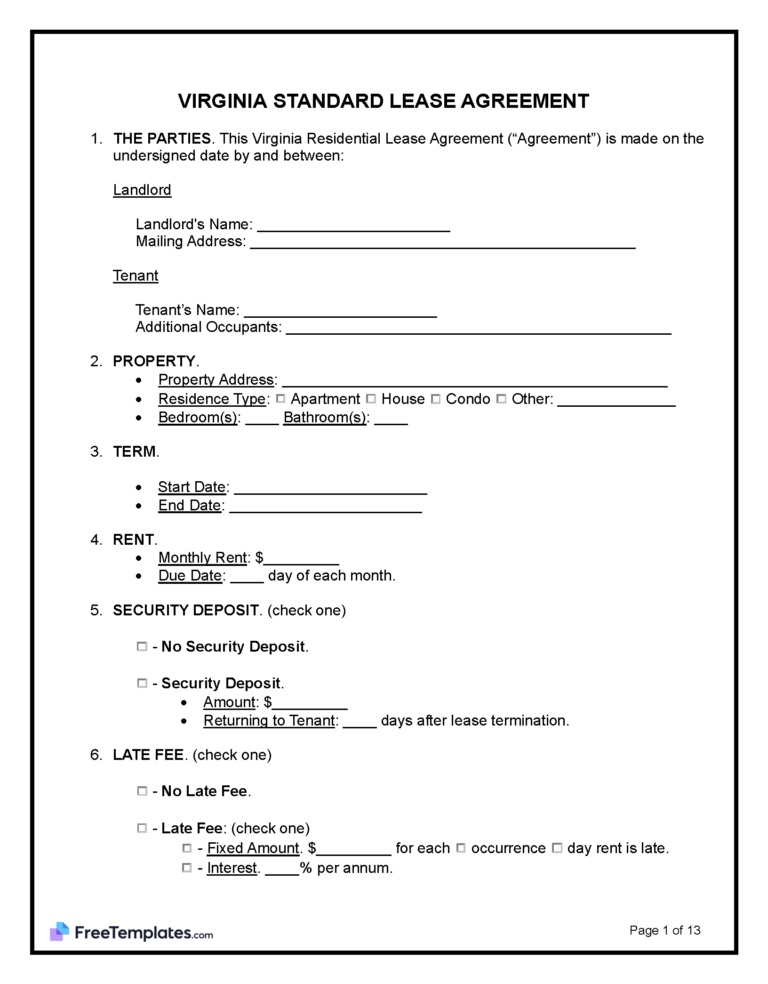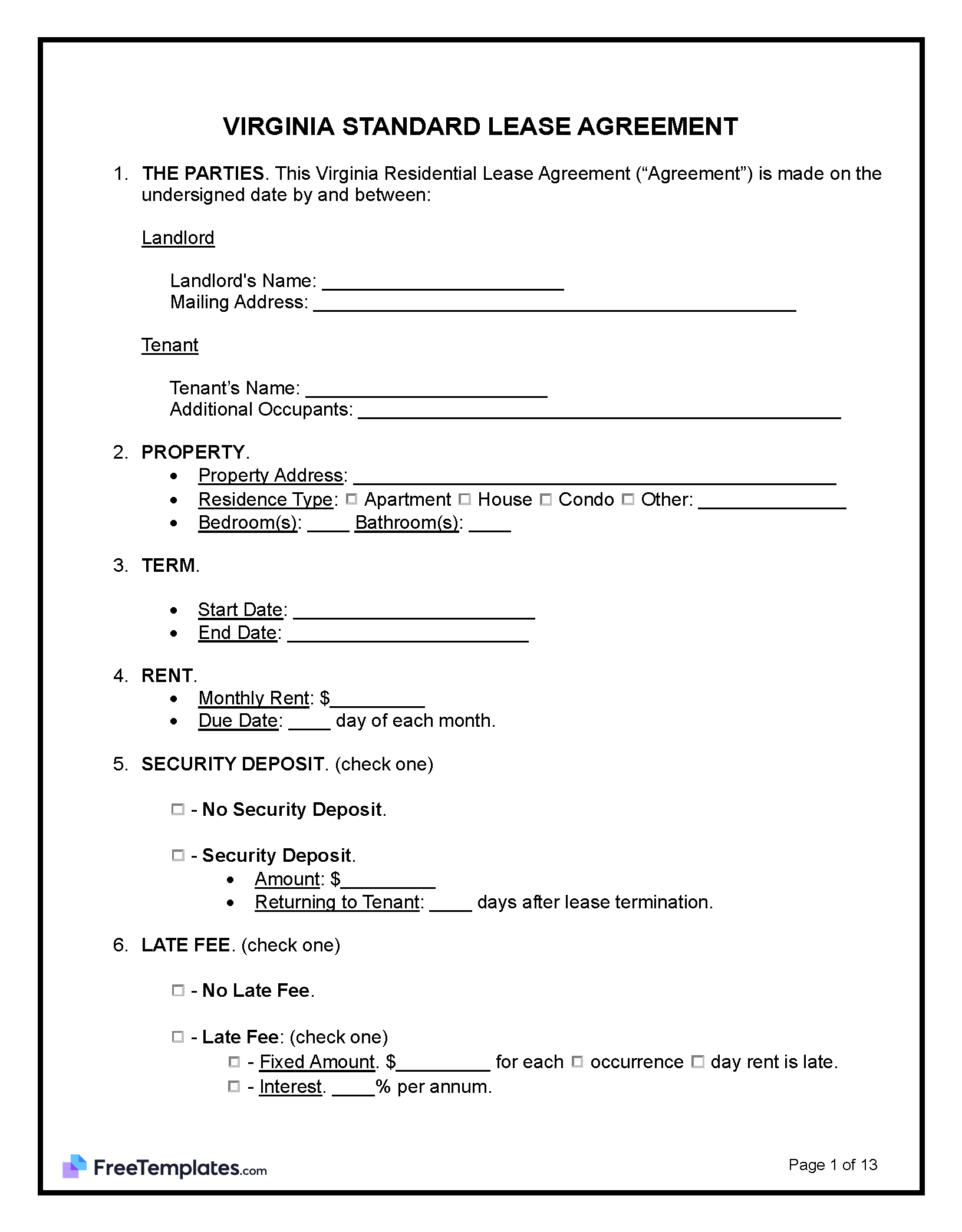Disclosures (11)
Defective Drywall – The landlord must inform the tenant if there is defective drywall in the rental property. (§ 55.1-1218(A))
Demolition or Conversion to Condominium – If the landlord plans on converting or demolishing the multi-family rental property, then the landlord must inform the tenants. (§ 55.1-1216(C))
Lead-Based Paint Disclosure – If the rental property was built before 1978, the landlord must disclose whether there is lead paint on the premises. (EPA/HUD Fact Sheet)
Landlord Identification – The landlord is required to disclose the property owner’s name and address as well as the information of any other individual acting on the owner’s behalf. (§ 55.1-1216(A))
Methamphetamine Disclosure – If the property has contained methamphetamine at some point and has not been adequately mitigated, then they must disclose this to the tenant. (§ 55.1-1219(A))
Military Air Installation Disclosure – If the rental property is close to a military airbase and may cause disturbances to the rental unit, then it must be disclosed to the tenant. (§ 55.1-1217(A))
Mold – At move-in, the landlord is required to provide a disclosure to the tenant as to whether there is visible mold present or not. (§ 55.1-1215)
Move-In Inspection – The landlord must provide the tenant with an itemized list of existing damages within five days of the lease’s start. (§ 55.1-1214(A))
Sale of Property – If the rental unit is sold, the tenant has the right to know the purchaser’s name, address, and phone number. (§ 55.1-1216(B))
Statement of Tenant Rights and Responsibilities – The tenant must receive a copy of The Department of Housing and Community Development’s form from the landlord and both parties must sign it. (§§ 55.1-1204(B))
Tourism Activity Zone – If the rental property is located in a “tourism activity zone,” the landlord must inform the tenants that events such as parades, street closures, and concerts may disrupt the unit. (§ 55.1-707)
Rent Grace Period
Security Deposit
Maximum Amount – The tenant may not be charged more than two months’ rent for the security deposit. (§ 55.1-1226(A))
Returning – The landlord must return the security deposit to the tenant within 45 days of the lease’s end.
- Deductions – If the security deposit is to be deducted, the landlord is required to create an itemized list at the time of move-out. (§ 55.1-1226(G))

